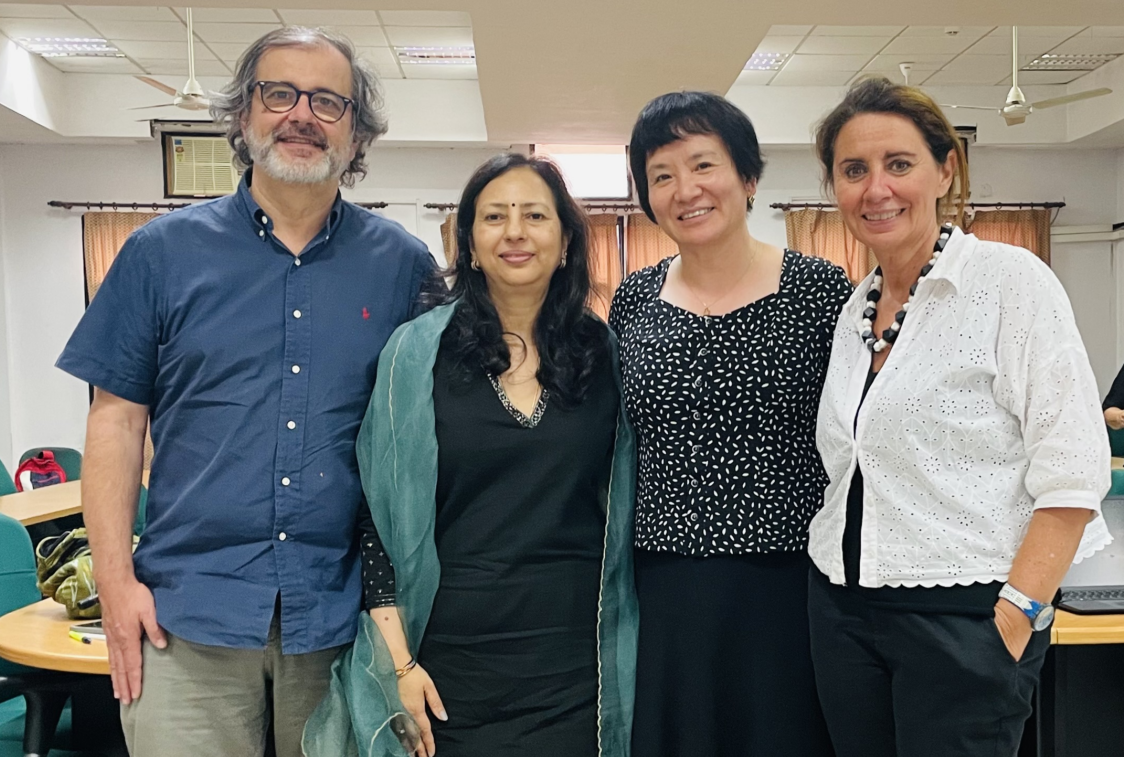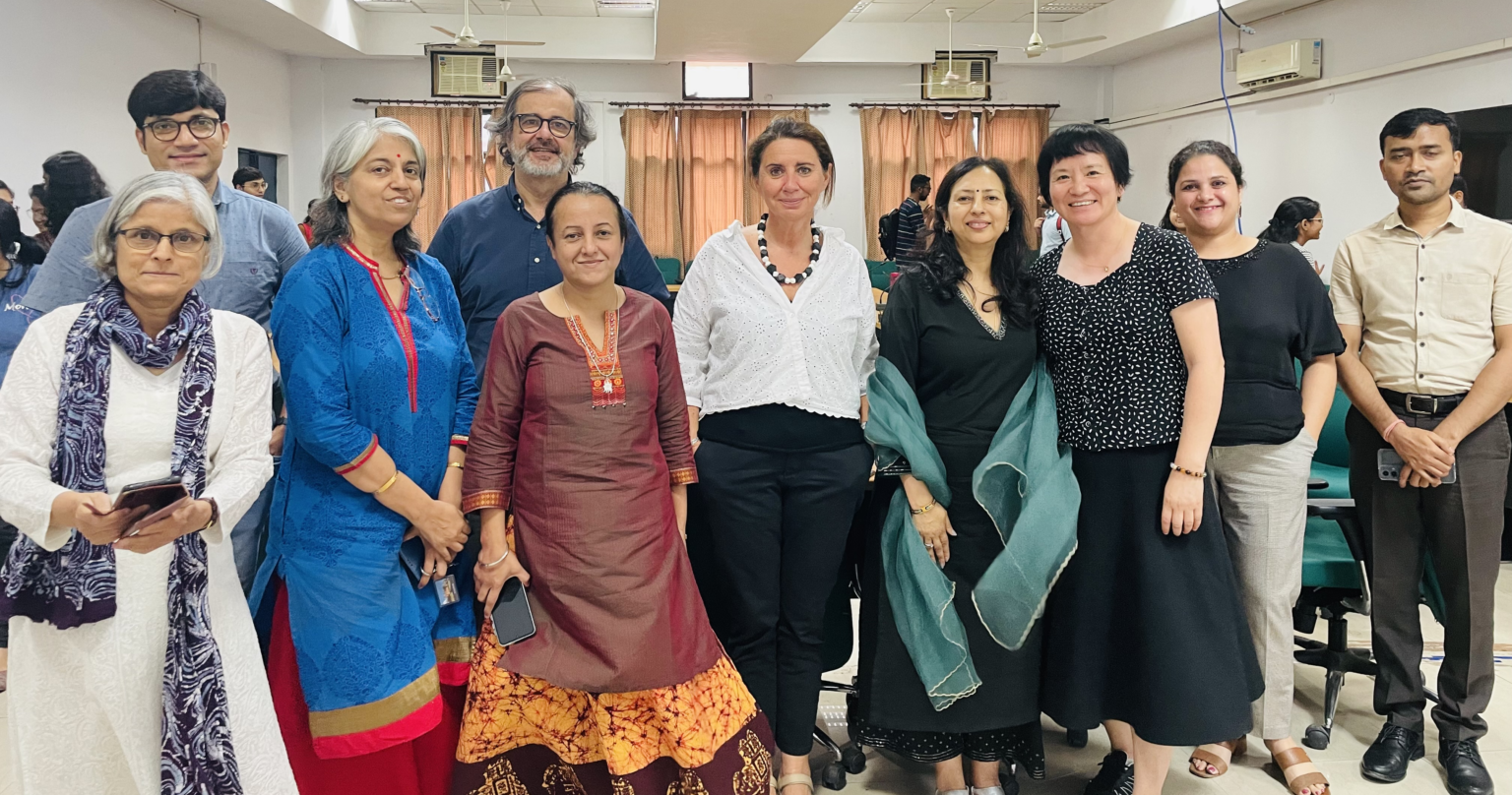
Prof. Yanhong Jin, second from right) with fellow workshop speakers at Jawaharlal Nehru University in New Delhi, India.
Yanhong Jin, professor in the Department of Agricultural, Food and Resource Economics, served as a distinguished speaker at the “Workshop on Transforming Agri-food Systems: Global Perspectives.” Jin presented on the topic, “Impact of GMO on agricultural productivity in a global perspective” at the workshop, which was hosted on August 8 by the Centre for International Trade and Development at the School of International Studies at Jawaharlal Nehru University in New Delhi, India.
This workshop provided an important forum for the international panel of experts to add to the discussion on the growing world population, economic growth, urbanization, technological advancement, globalization, and how changing food preferences have led to transformative changes in the way food is produced, processed, supplied and consumed.
These changes in agricultural production and food systems have resulted in impressive growth in agricultural production and productivity accompanied by an increased share of processed and energy dense foods in our diets having implications for food security, nutrition, and environmental sustainability.
The world faces various forms of malnutrition with 828 million undernourished people, about 1.9 billion overweight and obese people, and a large population with micro-nutrient deficiencies. The effects of these changes in agri-food systems are heterogenous across nations-while many developing countries are facing hunger and starvation and emerging economies such as India are facing double/triple burden of malnutrition, developed countries are struggling with overnutrition. The challenge for agri-food systems is to provide nutritious and healthy diets to growing population in an environmentally sustainable manner.
The workshop delved into some of these issues in an effort to understand how agri-food systems influence health and nutrition and the strategies that can be developed to promote better health, nutrition and the environment.
The distinguished scholars also shared perspectives from different parts of the world and also discuss how multiple goals of nutrition, health, equity, and environmental sustainability can be simultaneously achieved. In addition, the workshop provided an opportunity for faculty and students at Jawaharlal Nehru University to learn from and interact with leading researchers in the field.

Prof. Yanhong Jin, third from right, with workshop colleagues at Jawaharlal Nehru University in New Delhi, India.

